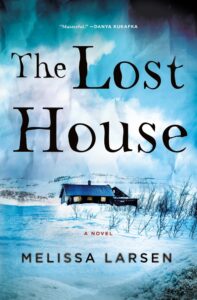In 2013, Tim Kreider achieved true Internet meme stardom when he concluded his New York Times essay, “I Know What You Think of Me,” with the line, “if we want the rewards of being loved we have to submit to the mortifying ordeal of being known.” The meme-ification of this statement proves just how perfectly it encapsulates the human experiences. It taps into our deepest insecurities—that if someone truly loves us, then it means that they have seen us, all of us. And it is an active submission, to be loved. Just as it is an active acceptance, to love someone.
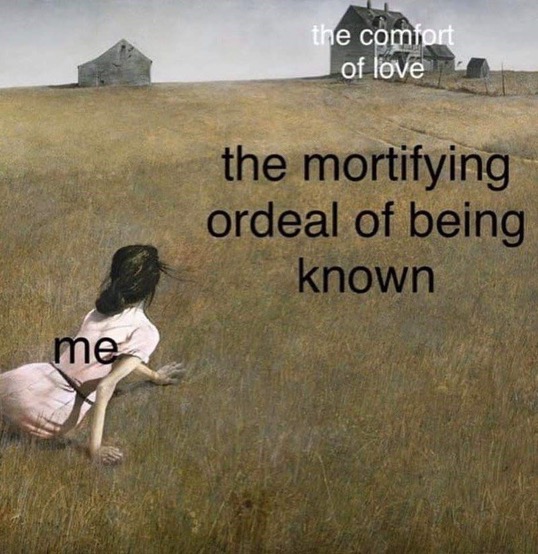
As a thriller writer, I am often asked the ever-dreaded and ever-fascinating question, “Where do your ideas come from?” I tend to answer, quite honestly, “I write what frightens me.” Because this is the thrill that all crime readers seek. Crime novels make our fears real. Just as romance novels stoke our fantasies and assure us there is love and tenderness in this world, crime novels allow us to explore our deepest fears in a safe environment. And what are our deepest fears?
For my first novel, Shutter, I used to joke that what frightened me most was, to put it bluntly, men. But if I tease this apart, if I look closer at the story, the answer is, more specifically, powerful men. More specifically still, falling in love with (or being manipulated by) a man. More specifically still, falling in love with a man, and thus giving him power over you. For my upcoming novel, The Lost House, I was preoccupied with a question: What if the world believed that the person who raised you was a murderer? And what if the person who raised you, who loved you most, actually was a murderer?
If I continue to tease that line of questioning apart, what it actually comes down to is something similar to the mortifying ordeal of being known. It comes down to the inherent vulnerability of loving someone and being loved in return. Both novels reveal a preoccupation with the power structures within a loving relationship, whether it is romantic or familial, and a fear of being vulnerable, being hurt.
For Agnes, the main character in The Lost House, the man in question is her grandfather. When she hears that a true crime podcaster will be recording a series about her grandfather’s infamous case (the murder of his wife and daughter, a crime that was never prosecuted except in the court of public opinion), Agnes travels to Iceland to clear her grandfather’s name. What I came to realize as I wrote this novel was that, for Agnes, the fear was not just that her grandfather couldn’t be a murderer because he was a good man. It was something far more subtle, and much more human: In her mind, her grandfather couldn’t have been a murderer, because he would have told her. The potential lie is a bigger betrayal than the grander moral implications of his history. She is more hurt by the lie because it betrays the intimacy of their relationship. It forces her to question everything. If it is true that he murdered his wife and daughter, what does it mean that he showed his granddaughter such tenderness? Who was he? Who, really, did she love? A murderer? A good man? A lie?
I should say, very quickly, I’m not spoiling The Lost House for you. This is simply the fear I was exploring in the novel, the fear of vulnerability. Of intimacy. Of what it means to love the entirety of someone, which must include their potential for violence. It is the truth, both terrible and precious to our human experience, that the ones who are closest to us are the most dangerous. They have the greatest capacity to hurt us, because they know us and we know them. Because we have both supposedly submitted to that mortifying ordeal of being known. Because it is the most vicious betrayal to learn that the person you thought you knew, inside and out, is a stranger. And not just a stranger, but someone who has actively hidden their true self from you.
In a thriller, this fear is made manifest into their extremes, our loved ones becoming murderers and serial killers and victims. I once read, but am unable to find again, an essay that covers this topic in comparison between two early-2000 coming of age horror movies, The Craft and Scream. Please forgive me, unknown writer, for paraphrasing, but the conclusion has stuck with me: In these two very different horror movies, the most dangerous threat to their young female protagonists isn’t a channeler of dark magic or some random serial killer, but their own boyfriends. Coincidentally both played by Skeet Ulrich.
It is the horrible accusation that gets thrown around, after someone hurts us: You should have known better. It is the question we ask ourselves, after we have been hurt: Can I trust my own instincts? It is the fear of even letting someone get close to us, because once we submit to that ordeal, they have the potential to hurt us. Here are five novels that embody this fear, that make the mortifying ordeal of being known a reality:
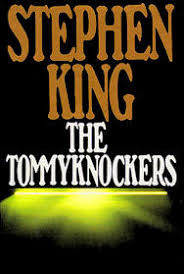
The Tommyknockers by Stephen King
Though the competition is fierce, this is my favorite King novel, because of the relationship between the two main characters, because of the intimacy and heartbreak and love explored in this terrifying story. Bobbie Anderson, a young writer living alone, stumbles over a piece of metal on her land in Maine and becomes convinced that it is a long-buried UFO. She struggles to uncover this massive spacecraft, and let’s just say that it starts to affect her negatively. Meanwhile, her best friend and once lover, Jim Gardner, miles away has reached his own rock bottom after a bender. He stands on the precipice of committing suicide when he’s overcome with a deep certainty: Bobbie needs his help. Determined to help, he joins her in the struggle, and then it’s he who needs rescuing.
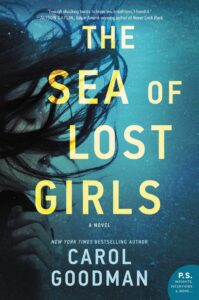
The Sea of Lost Girls by Carol Goodman
There are so many of Goodman’s novels to choose from that explore this particular topic, but this is the one that I return to again and again. A teacher at a remote private school, Tess, wakes in the middle of the night to a text from her troubled teenaged son, asking her for help. She finds him by the shore, alone, drenched, covered in what looks like blood, and unwilling to explain. Hours later, she receives a call from the school administration informing her that her son’s girlfriend has been found dead on that same shore. A mother’s fierce love is put to the test in this absolutely stunning, atmospheric novel.

The Quiet Tenant by Clémence Michallon
I can’t write about our beloved family members being murderers without mentioning The Quiet Tenant. Aidan Thomas is an upstanding citizen in his Upstate New York town, beloved by all, especially his teenage daughter, Cecilia. There’s just the matter of his locked shed in the backyard, where he’s imprisoned a young woman, Rachel, for the past five years. When Aidan’s wife dies, he’s forced to move and forced to bring Rachel out of the shed and into his home. I’ll say no more, except that there is an image at the end of this novel that still gives me goosebumps to this day.
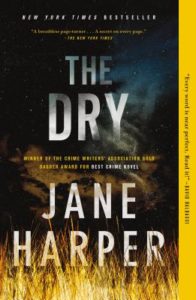
The Dry by Jane Harper
This list is actually just an excuse to recommend all of my favorite thrillers! In a small farming town in Australia, a terrible tragedy has occurred: A well-respected man has supposedly killed his wife and son and then himself, leaving only his infant daughter alive. His estranged childhood best friend, Aaron Falk, comes home for the funeral and finds himself haunted by the question: Was his best friend really a murderer? If he killed his wife and son, was he responsible for the unsolved death of their childhood friend years ago?
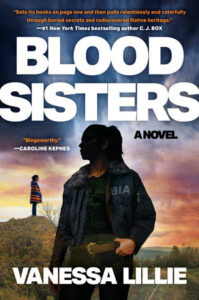
Blood Sisters by Vanessa Lillie
Fifteen years ago, Syd Walker witnessed her best friend’s murder and barely escaped with her own and her sister’s life. Now, working far out of state as an archaeologist for the Bureau of Indian Affairs, Syd is called home by a threat: A skull placed near the scene of the crime, with her ID badge held in its teeth. Reluctantly, Syd returns to uncover old wounds and new horrors alike. Her sister, troubled and far too involved in the dark threads that hold their hometown together, has gone missing. I read this one so fast I was almost out of breath, both from the pace and the terrors within.
***
